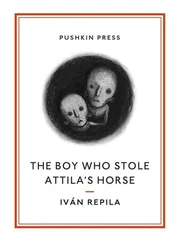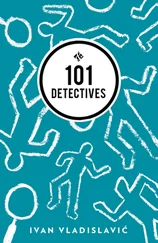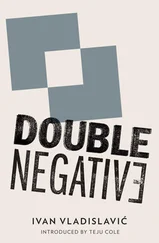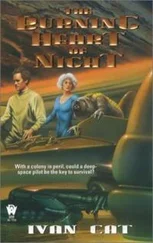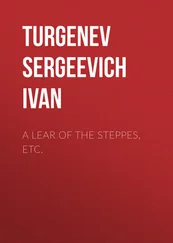“I still say we should call the cops. If it’s the wide open spaces he wants, let them put him on a train to the platteland.”
Mr scalped his egg and stirred its soft-boiled insides with the point of his knife. Between a thick brown forefinger and thumb he took up a slim white finger of buttered bread (it was margarine, to tell the truth), dunked it in the egg, wiped it carefully on the rim of the shell and raised it dripping to his lips. He chewed and said, “Now I don’t want you doing anything foolish while I’m at work.”
“It’s all very well for you. You don’t have to sit here all day long putting up with him.”
“Sigh!”
“I wish you wouldn’t say that!”
“Say what?”
“Sigh. It’s irritating.”
He picked up the chopped-off lid of eggshell on the end of his thumb. It looked like a miniature skull-cap stuck to a fillet of white flesh.
Nieuwenhuizen extended his right hand, clasped a branch of the hedge and shook it warmly.
“What if he’s a dangerous criminal?” she went on. “Perhaps he’s on the run.”
“If he was on the run he wouldn’t be standing out there in broad daylight making a racket. Come away from the window.” She came away.
“You always think the worst of people. He could just as well be a professor, fallen on hard times. If I had to hazard a guess, that’s what I’d say. Just look at the head he’s got on him! When I behold that head I must say it gives me a good feeling about him, here, in the pit of my stomach.” He pointed out the spot with the yellow tip of his knife.
Mrs slumped down at the table and gazed into the frog’s eye, which gazed back without blinking from the gummy dregs of her coffee. “Is he one of these squatters we’ve been hearing so much about? Will he put up a shack and bring hundreds of his cronies to do the same? ‘Extended families.’ What do you think? Will they hammer together tomato boxes and rubbish bags, bits of supermarket trolleys and motor cars, noticeboards and yield signs, gunny sacks and jungle gyms, plastic, paper, polystyrene. .”
“Enough.”
“. . brass, bronze and Beaverboard. Fine. We’ll be forced out of our home. They’ll play their radios loud. They’ll go in the streets like dogs. They’ll tear up our parquet for firewood.”···
Nieuwenhuizen dug a moat around his tent with a broken bottle. Then he reviewed the interior of his portmanteau, in which a wide range of utensils and provisions lay snugly, cushioned by underpants, vests, and socks rolled into balls and swallowing their own toes. His rummaging fingers scared up a mouldy smell, which reminded him of the furry bodies of moths, which in turn brought the unthinkable taste of them into his mouth. To dispel this loathsome impression he quickly unpacked a few things and arranged them to his satisfaction around the camp. It looked good. Now for furniture. He fetched stones and constructed a simple table and chairs, and a hearth with nifty inglenooks and ledges.
He rested.
While he was lolling on his stony seat the man of the house emerged. Nieuwenhuizen followed his progress by the roar of an engine, gears grating, gates clanging, a door slamming. Soon a battered bakkie with a home-made canopy and a built-in roof-rack piled with planks and a capsized wheelbarrow came slowly but surely into view. Bravo! Right on cue. There was a sign on the door — half a manikin, Mr. . Something. . the surname was obscured by a smear of red paint. The bakkie drew up at the kerb. The driver got out, walked ponderously to the rear of the vehicle and kicked the tyre, and looked at his toe-cap. Then he went to the front, kicked that tyre, and looked at his shoe again. Then he got back into the cab and drove off.
Long after the sound of the engine had died away Nieuwenhuizen remained glued to his chair with his head cocked and his mouth hanging open. Then he roused himself with an effort. There was work to be done.
To begin with, he ruled lines with his eyes, from one little landmark to another, twig to knoll and kerbstone to leaf, pillar to post and branch to berry, so that his territory lay enmeshed in a handsome grid, and he numbered the blocks methodically, Roman numerals down one side and capital letters down another, and spent hours plundering each one until it delivered up its riches. He was surprised at how many useful objects lay concealed in the grass: beer bottles and cold-drink tins, inner tubes, bits of board and metal, scribbles of wire, insulators, screws, plastic bags, cardboard cartons — well, there was only one: a cardboard carton, strictly speaking — and scraps of newspaper. He carried all his finds back to camp in his drum and stored them away for future reference. He also salvaged half a dozen fine fence-posts and a cast-off letter-box shaped like a shoe.
The discovery that pleased him most was a weathered FOR SALE notice he disentangled from the barbed-wire shroud of the fence. He was so delighted with it that he made a note of its position on the grid (XA) and wished he’d had the foresight to do the same for the other items. He turned it over in his hands. He gave it a stiff kick to dislodge some of its rust. It had useful object written all over it. It was not long before a precise potential function revealed itself: with the addition of a few strategically placed holes this simple metal plate would make an excellent braai-grille.
At midday he sought the spiky shade of his thorn-tree, made himself comfortable, and scoured every last flake of rust and blistered paint off the sign with handfuls of gravel and an ingenious barbed-wire brush of his own device. Then he set about punching holes through it in regular rows with a large nail, which he had brought with him, and a well-proportioned flint, recently acquired, which he had nominated as his hammer.
He now found time to reconsider his first impressions of his new neighbour. He was not disappointed. Firstly, he assumed that the tyrekicking performance had been for his benefit, which was a sure sign that the man was eager to make contact. Secondly, the man worked, or so he inferred from the rattletrap vehicle and businesslike demeanour. Thirdly, his physical presence was imposing. He was bulky and solid. His face was the colour of putty, but his forearms were a healthy kiaat-red. Shirt-sleeves in this weather? Either he was hard as nails or he was trying to impress. His head was a little square perhaps, and his hair plastered down on its flat top like a doormat, but his features were open and friendly. No one’s perfect.
Then there was the woman. Nieuwenhuizen didn’t know quite what to make of her. There was no sign of her now, but a few times that morning he had seen her face rise wanly behind a mist of net curtaining or sink below the horizon of a window-sill.
My next-door neighbours, he thought, except that I have no door.
In mid-afternoon, when his handiwork was almost done, his eye fell for the hundredth time on the prefabricated wall — and he noticed with a jolt that the wagon-wheel panels were interspersed with rising suns. He was still puzzling over how these panels had escaped his attention thus far when it struck him, with another jolt, that perhaps they were setting suns! And who could tell?
This line of thought threw him into a state of violent scepticism about every perception he had had since his arrival in this godforsaken place. He examined the house behind the wall with new interest. It was still there, which was reassuring, but would its plastered features pass for white? More like off-white, you could even say cream. Buttermilk? As for the roof, that was red all right, but what kind of red? Raspberry? It was certainly not the same shade as the bougainvillaea creeping up one pillar of the stoep. Hang on. What’s this? Flowering out of season? The blooms looked as if they were made of crinklepaper pinched on stems like pipe-cleaners. That would be her doing. He turned his eyes on the empty frames of the windows, and the curtains on either side, nipped into hourglasses by tasselled thongs, and tried to caption them: Kitchen. Lounge. Bedroom. Bathroom? Bedroom. Lounge. Two lounges?
Читать дальше


